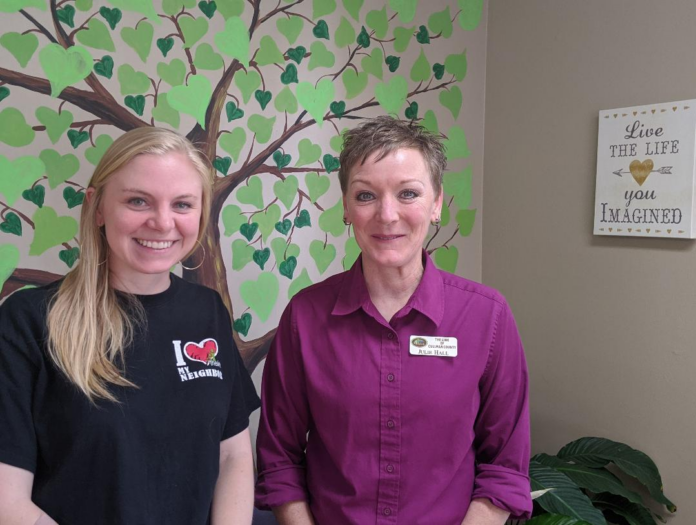
CULLMAN, Ala. – In the United States, almost 44% of people released from prison will be arrested again within one year, 68% within three years, and 83% within nine years. The phenomenon, known as recidivism, creates a cycle of hardship on communities, victims, families, law enforcement, courts and even the incarcerated themselves. The Link of Cullman County hopes to change that, at least in Cullman County. The nonprofit agency, through a $500,000 federal grant funded by the U.S. Department of Justice (DOJ) under the Second Chance Act, will roll out a new program in September that will help keep people coming out of prison from going back.
In announcing the award last fall, the DOJ’s Bureau of Justice Assistance release read:
The Second Chance Act of 2007 (Pub. L. 110-199) provides a comprehensive response to assist in the transition individuals make from prison, jail, or juvenile residential facilities to the community so that the transition is more successful and promotes public safety. The Second Chance Act grant funding is designed to help communities develop and implement comprehensive and collaborative strategies that address the challenges posed by reentry and recidivism reduction. Reentry is not a specific program, but rather a process that starts when an individual is initially incarcerated and ends when he or she has been successfully reintegrated in the community as a law-abiding citizen.
Section 211 of the Second Chance Act, codified at 34 U.S.C. § 60531, authorizes grants to nonprofit organizations and federally recognized Indian tribes that may be used for services to promote the safe and successful community reintegration of adults who have been incarcerated.
The Second Chance Act Comprehensive Community-based Adult Reentry Program supports organizations or tribes providing comprehensive reentry services to program participants throughout their transition from jail or prison to the community. Under this solicitation, BJA is seeking applications to implement or expand on reentry programs that demonstrate strong partnerships with corrections, parole, probation, law enforcement, and other reentry service providers. These partnerships should develop comprehensive case management plans that directly address criminogenic risk and needs, as determined by validated criminogenic risk assessments, and includes delivery or facilitation of services in a manner consistent with the learning styles and abilities of the participants. This includes ensuring cognitive behavioral programming is in place pre-release, whether by the lead applicant or a partnering agency.
The Link of Cullman County, Inc. will use award funds to provide a comprehensive approach to adult reentry to identify transitional needs of the offender by providing case management, cognitive intervention, and follow-up measures. The Link Inc. will provide services to a minimum of 40 medium to high level offenders per year in coordination with jail and prison.
The Tribune spoke to Link Director Julie Hall and Aubrey Moore, who will be overseeing the program.
Moore said the ultimate goal of the program is to “Reduce recidivism, specifically in Cullman County. That’s the overarching thing, is for people who do come through the program, for them not to have any recidivism occurrences.”
Hall told The Tribune, “We’ve been training, we’ve been planning, we’ve been doing all kinds of things to prepare for the launch. So now, we are both trained in basic MRT (Moral Reconation Therapy). Correctional Counseling, Inc. provides that; they train and prepare. You have to be certified to be a facilitator. We’ve both been trained in basic and advanced MRT, so we’re prepared.
“The whole idea of MRT is that it raised their moral awareness, so that they’ll make better decisions and not return to prison. It’s strictly based on self-responsibility and acceptance. It takes all your excuses away.”
Moore added, “It’s like moral development. It’ll help them develop those moral skills and everything. We’ll talk about things like their family and different experiences that they’ve had, but it comes down to what they did and us addressing that with them. We’re really excited about MRT.”
Before September, Hall and Moore will also complete training in dealing with the types of trauma that can lead a person to criminal activity.
Hall remarked, “I won’t say that childhood trauma leads to criminality. But, criminality is very often marked by childhood trauma. That is why Aubrey and I are receiving training in the Trauma component of MRT.”
The Link was one of only 11 agencies nationwide to receive the DOJ/BJA grant for this year.
For Cullman County, according to Hall, the program means “Citizens who are working, paying into the tax base, reunified with their family, spending their money here. They’re productive members of society. You want them to live in your neighborhood, because they’re different people than they were when they were incarcerated.”
For more on The Link of Cullman County, visit www.linkingcullman.org.
Copyright 2020 Humble Roots, LLC. All Rights Reserved.



























